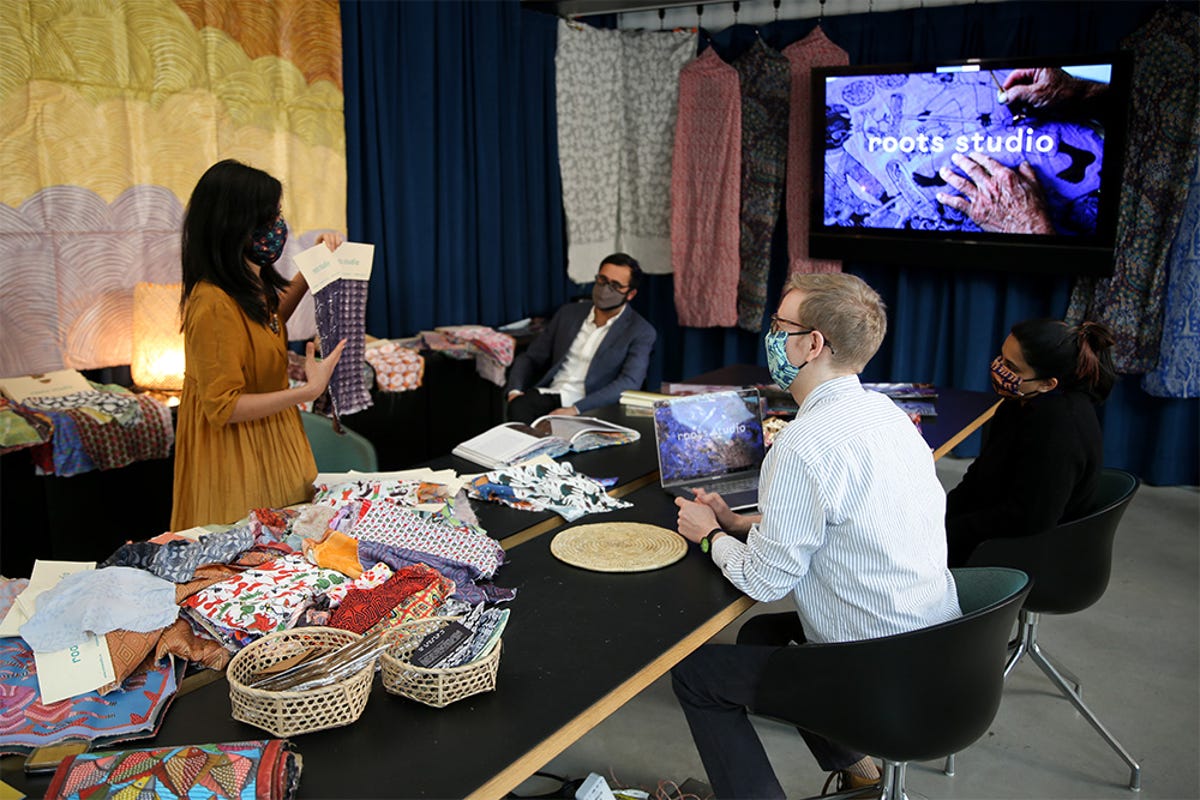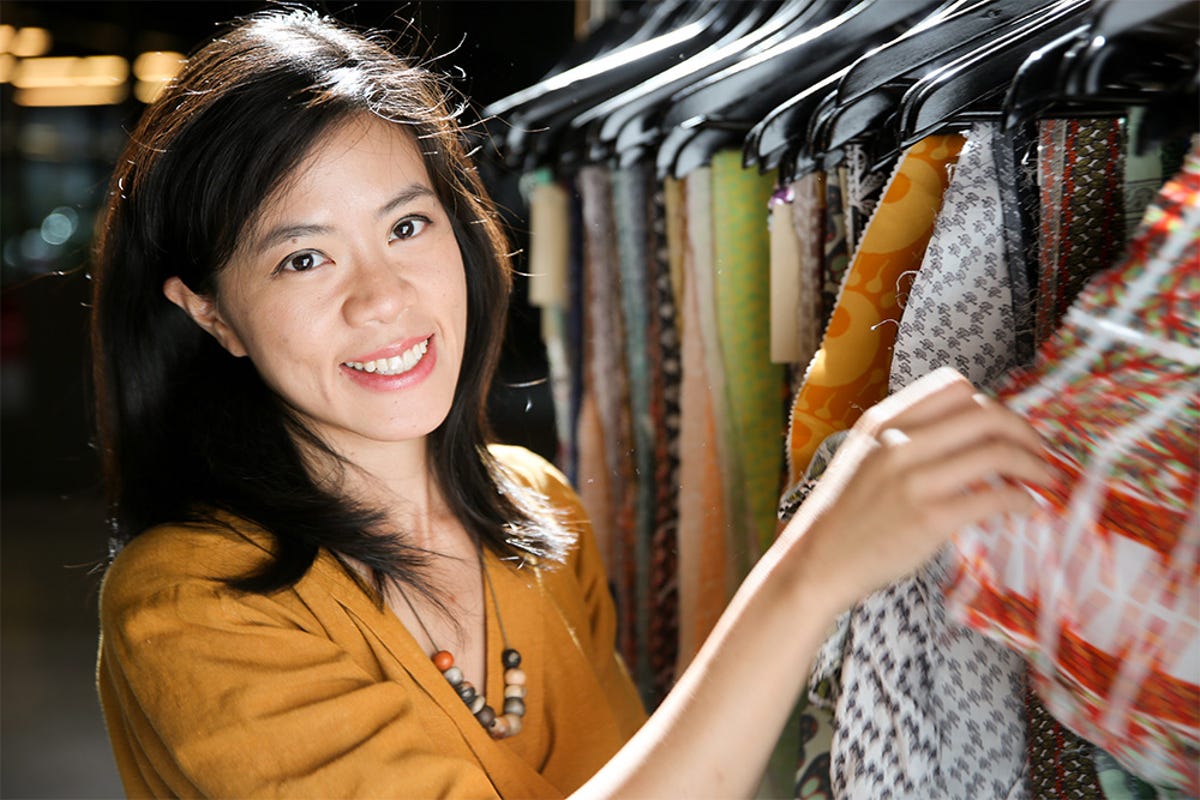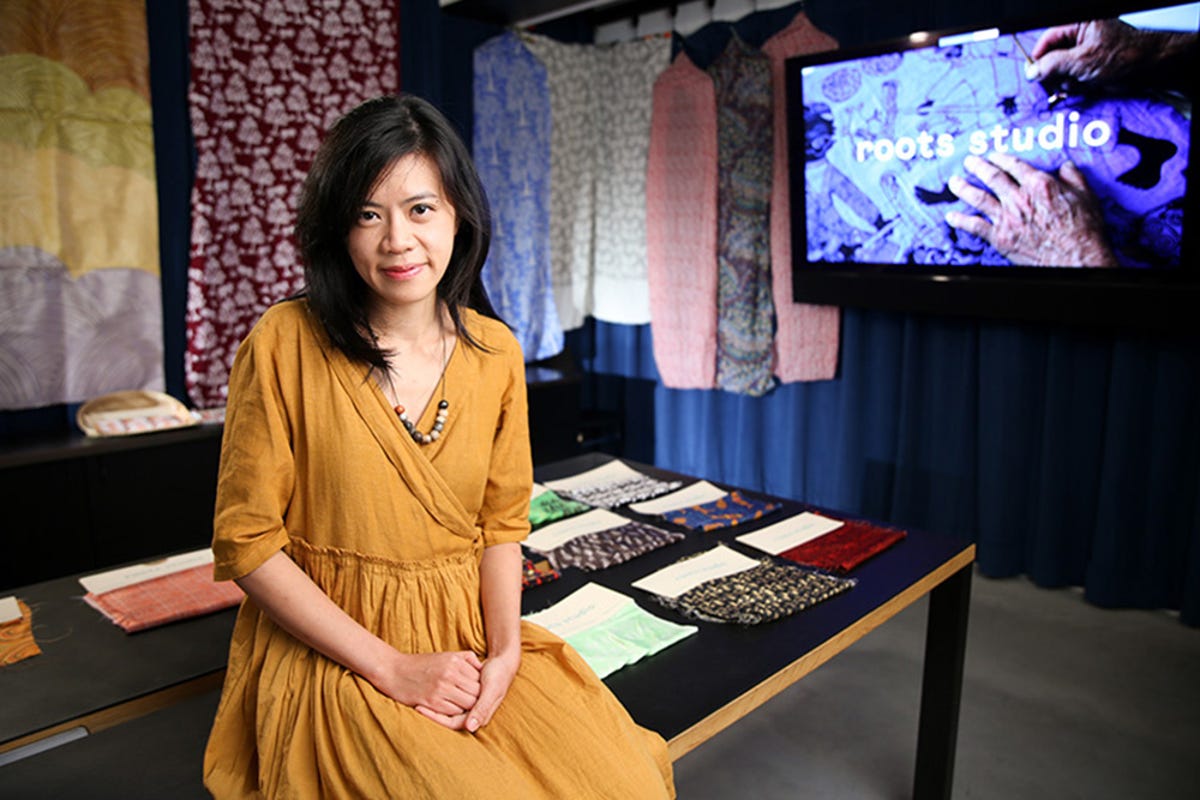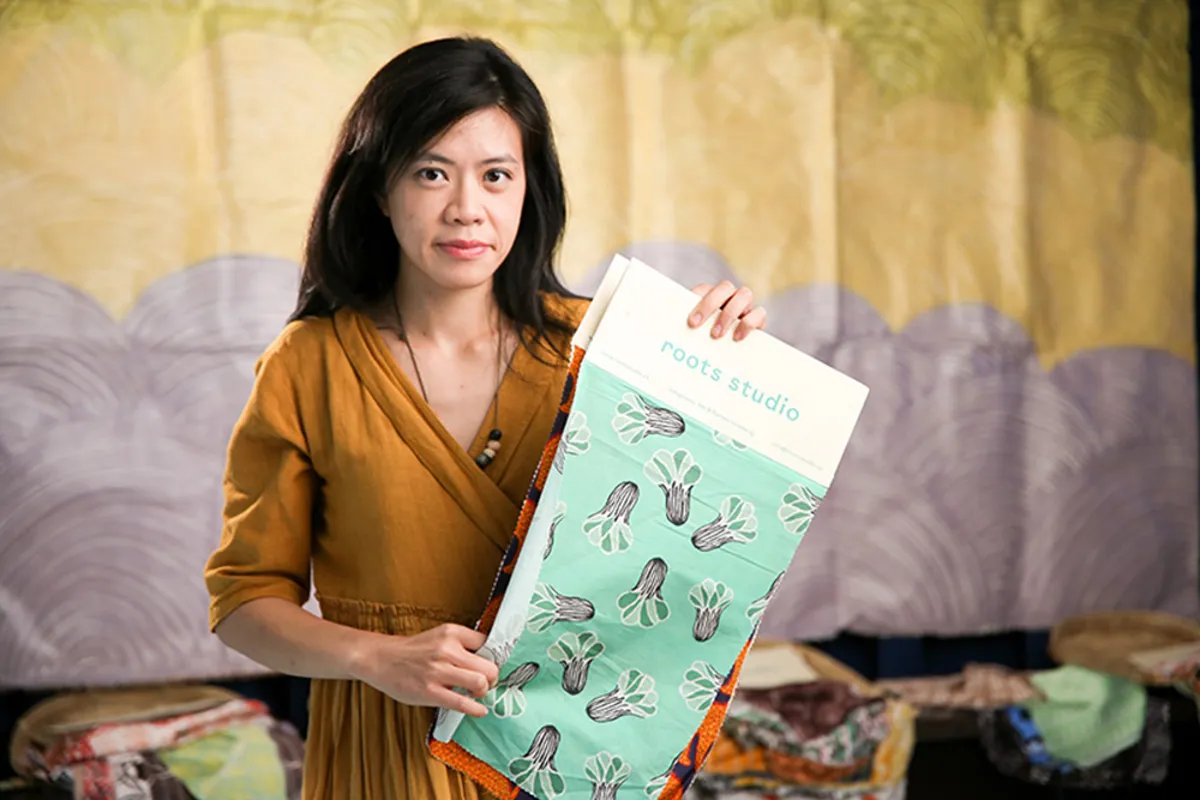Fellow Portrait
Rebecca Hui
Roots Studio
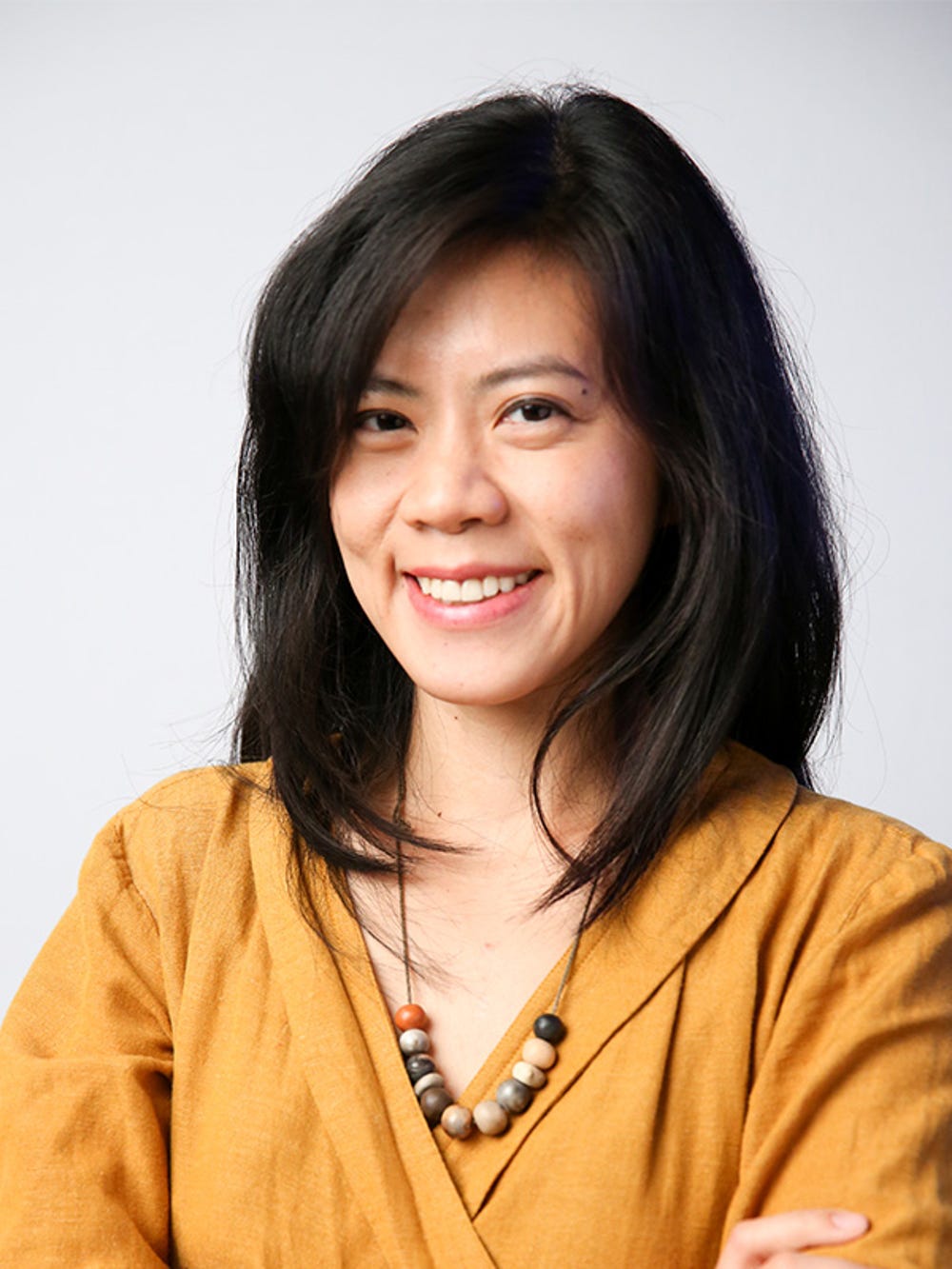
Roots Studio works with rural communities globally to digitize their cultural heritage into intellectual property for licensing.
North America
UNITED STATES
FELLOW
2021
Updated March 2021
Rural art lacks market access
Rural artists create incredible tapestries, tattoos, murals, and other works, but often leave their villages for urban areas because they struggle to support themselves financially. They may end up living in crowded conditions, working hazardous jobs, and losing the connection to their communities.
At the same time, retail brands in the United States and Europe represent a 32-billion-dollar annual market for the licensing of cultural designs to print on fashion items, stationery, and other goods. When brands can’t connect directly with artists, they sometimes appropriate material, leading to an estimated $12 million in intellectual property (IP) opportunity costs per year, per community.
Art has always called to Rebecca Hui. She ended up pursuing a more practical educational path of architecture and business and eventually traveling to India on a Fulbright. There, she was inspired by the creative heart of the rural communities where she was living, but was stunned to find that so many talented creatives had to leave their homes for jobs that paid so little. She asked herself, “How do we show the artists that their voice and inheritance matters, and that there is a world starving for authenticity and meaning, willing to pay to make it work?”
The communities held a sense of inheritance that is not just monetary—their identity, their culture, their creative voice.
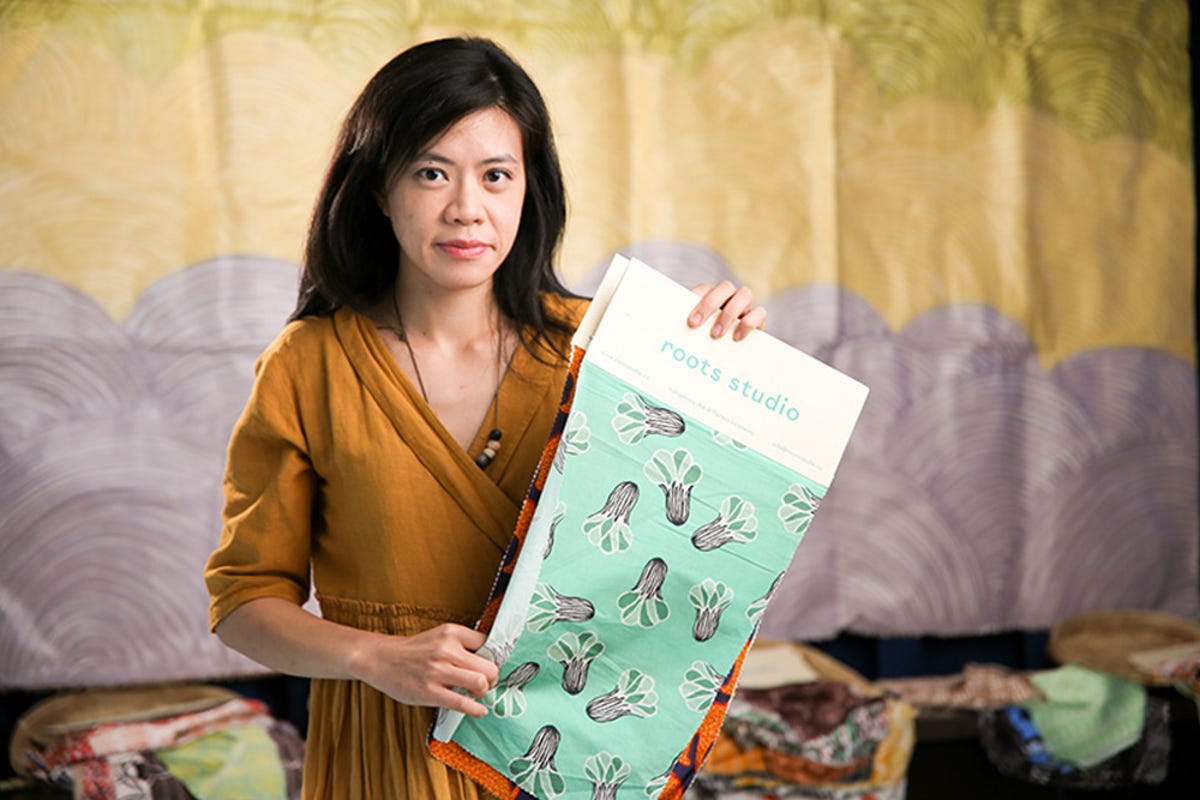
Building a bridge to the world's largest brands
The answer was Roots Studio, which bridges cultures and reverses cultural loss and appropriation. Roots Studio holds regular community workshops with heritage artists, often led by organizers of tribal descent. The Roots Studio design team digitizes the artists’ works, then transforms them into new mediums for licensing in a digital library, undertaking many participatory dialogues and IP protection to maintain the integrity of the cultural motifs.
Roots Studio has worked with more than 2,200 artists, mostly in Asia, through a consensual process to offer designs to global brands such as Outdoor Research and PrAna. Royalties returned to the village average five times the works’ original selling price and are split 75/25 between the community and contributing artists. This arrangement recognizes individual talent while allowing the whole village to participate in meeting community needs. “We measure change not only by the income we can bring back to support the artists and community wealth, but also by the increased confidence and pride in their own identity,” Rebecca says.
Migrants who go to the cities end up mostly in informal settlements because they can't afford rent. Then they often face labor and sexual exploitation. What if there was a way for them to earn money from their creative skills without having to take on the risks of leaving their homes?
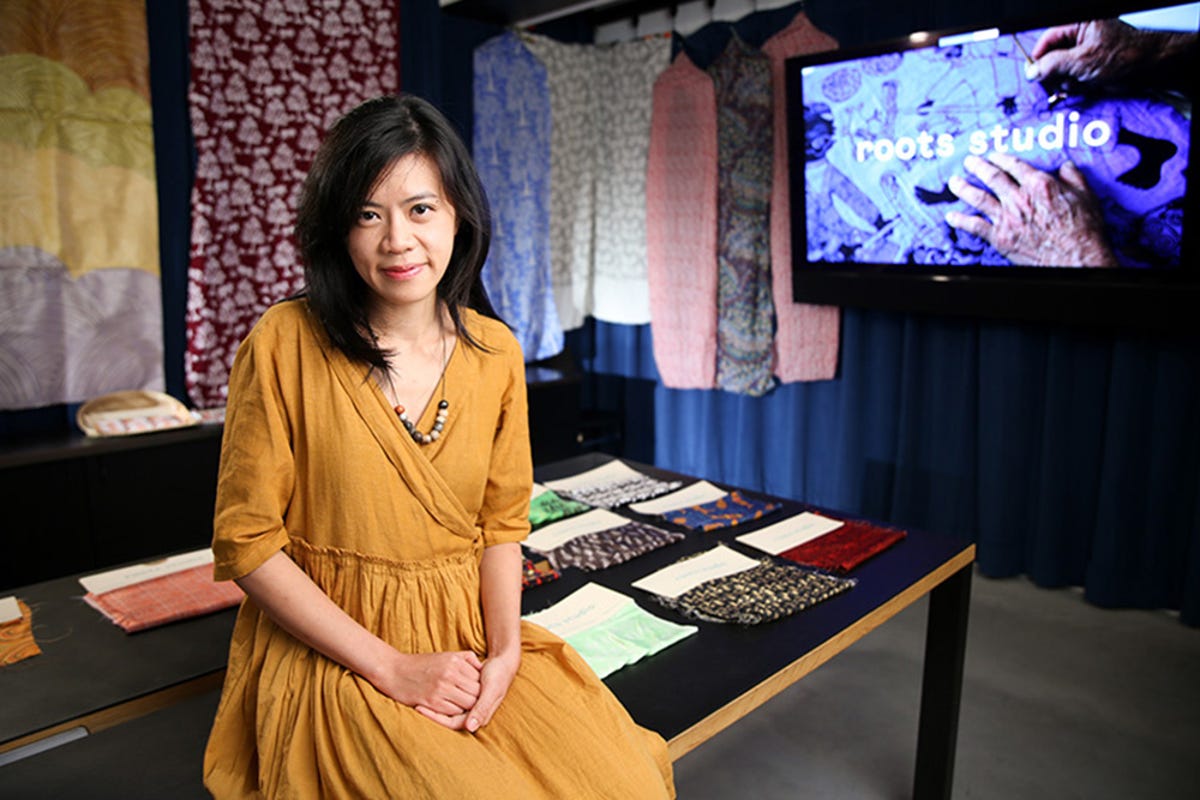
Dispersing beauty and wonder
Rebecca expects more than a million Roots Studio partnership products will be in distribution by 2022. The company also is working with indigenous creatives to reimagine their heritage art forms in forward-thinking mediums such as music and film. “It doesn’t just stop at fashion. It's about harnessing the creative potential of artists to bridge discrimination gaps, and to inspire the next generation exposed to media culture to see their heritage represented and valued,” she says.
By giving the world access to rural art, Rebecca is fulfilling her company’s mission of bridging cultures and reversing cultural loss and appropriation through beauty and wonder.
It’s estimated that each tribe loses out on about $12 million a year just from IP opportunity costs.
